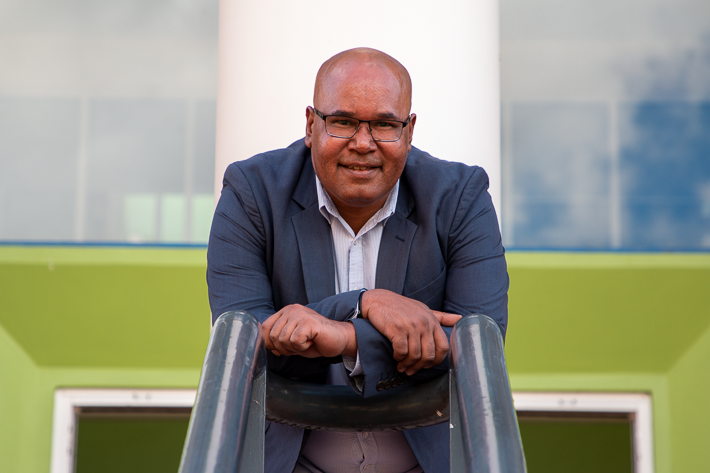On Track - Cultural Awareness
In our latest careers article, UNE Aboriginal Employment Consultant Errol Clarke shares a few home truths.
 Errol Clarke
Errol Clarke
Railing against racism
Racism is a sad reality, says UNE Aboriginal Employment Consultant Errol Clarke.
“The perfect utopia does not exist and never will. But that doesn’t mean we shouldn’t do all that we can to curtail it and call out racism whenever it rears its ugly head.”
During the past year at UNE, Biripi man Errol has delivered a series of full-day Cultural Connections courses for staff and a pioneering online package for Joint Medical Program students in readiness for their placements within an Aboriginal Medical Service. He’s often disappointed by how little people understand about Aboriginal and Torres Strait Islander people and their history of dispossession, and how government policies have impacted the wellbeing of our First Nations peoples.
“School curriculums of the past have delivered only fragmented information, so it’s up to me to help fill some of the gaps,” Errol says. “The sad realities can sometimes hit people hard.”
But raising awareness of past injustices, and how cultural protocols and behaviours may affect our First Nations work colleagues, is important for every Australian workplace.
“It’s important for all of us to understand what First Nations peoples have gone through, and continue to go through sometimes on a daily basis,” Errol says. “Better understanding this history can begin the process of developing strategic plans like the Reconciliation Action Plan (RAP) we have at UNE. Every organisation should at least have a cultural diversity plan to promote greater engagement with Aboriginal and Torres Strait Islander peoples, encourage employment opportunities and events to celebrate that diversity. I would like to see it everywhere.
“It’s important to understand the people you work with, but also the First Nations people you engage with in business, who might be stakeholders or customers. We all need to be aware and ensure the cultural safety of those we interact with.”
During the training he delivers, Errol highlights the distinct histories of Aboriginal and Torres Strait Islander peoples and the diversity that exists within Aboriginal cultures, as illustrated by differences in language, family and kinship structure, spirituality and ceremonies.
He explains respectful behaviour, like acknowledging country and traditional custodians, and provides advice on how to build rapport with First Nations peoples.
“The fundamentals of improving race relations, creating equality and institutional integrity are being trustworthy and transparent, showing respect, and being involved and invested,”
“The fundamentals of improving race relations, creating equality and institutional integrity are being trustworthy and transparent, showing respect, and being involved and invested,” Errol says. “If you are entering an Aboriginal or Torres Strait Islander community, then consult those responsible for decision-making and work to ensure that people feel safe. That may not happen straight away. It may take several meetings to achieve that.”
Any of the people around us could be Aboriginal and Torres Strait Islander and not identify as such, but the solution is simple. “In any professional organisation, whether a person is black, purple or yellow, they should not be subject to racism in any form,” Errol says. “If they have identified as Aboriginal or Torres Strait Islander, then that can become part of their induction and addressed with colleagues during their onboarding.
“Employers have an obligation to guard against casual racism but we can all call out behaviour that is offensive. Everyone has unconscious bias – it is instilled in each of us – but we all have an obligation to be better informed, so we can minimise its impact.”
If your workplace doesn’t have a cultural awareness program, Errol recommends asking that one be developed.
As a member of the RAP community, UNE is one of more than 1,000 corporate, government, and not-for-profit organisations that have formally committed to reconciliation. RAP organisations define, measure and seek to advance reconciliation through improving race relations; equality and equity; institutional integrity; unity; and historical acceptance.
“Whatever you do in your workplace to raise cultural awareness, it can’t just be tokenistic; we need real, tangible outcomes,” Errol says. “It’s not a case of ‘set and forget’ but something that we have to make a commitment to on an ongoing basis by embedding it in the culture of organisations. At the end of the day, it unifies us all.
“It’s starting to happen, but we still have a lot of work to do.”

